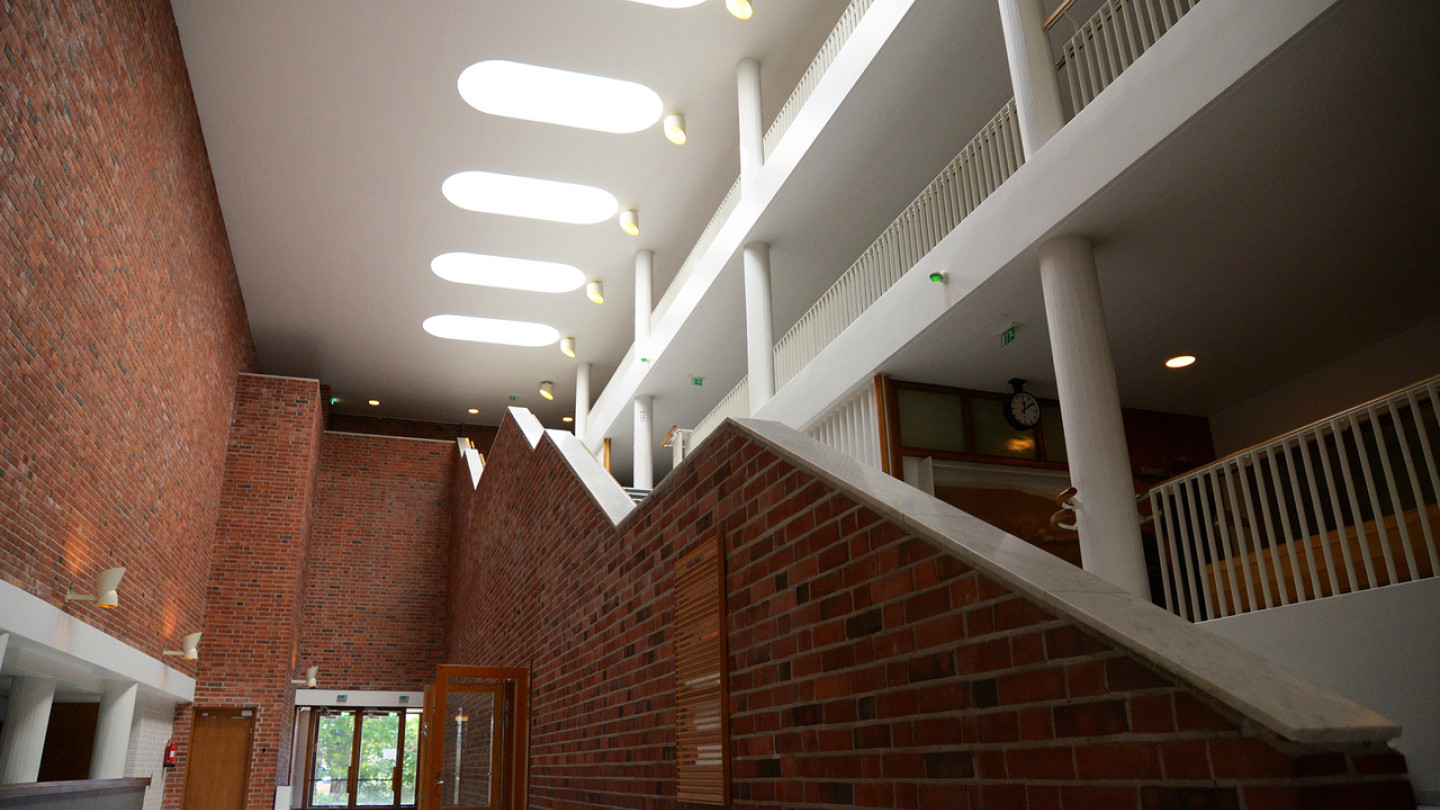Financial statement of the University of Jyväskylä 2022: excellent result in research, negative operating result

The University’s result in competed research funding applications was at an excellent level; four Centres of Excellence (CoEs) appointed by the Academy of Finland were started at JYU for 2022–2029. JYU coordinates three of the CoEs and participates in the fourth. Three CoEs will continue in 2018–2025. In January 2022, the European Research Council (ERC) awarded a highly competed ERC Starting Grant of two million euros to two researchers of the University of Jyväskylä. In addition, one researcher received an ERC Consolidator Grant of around two million euros in March.
The University of Jyväskylä was the fifth most popular study option in 2022
In 2022, the University of Jyväskylä had 14,300 students. In total 1,447 of them completed a master’s degree (1,538 in 2021) and 1,201 a bachelor’s degree (1,275 in 2021). The number of new doctors was 116 (136 in 2021). The total number of degrees completed in 2022 decreased, but the University of Jyväskylä retained its strong position in open higher education in Finland.
JYU had in total 17,970 applicants in the domestic joint application of 2022. A nation-wide decrease in the numbers of university applicants affected us less than Finnish universities on average, which was a positive result. Based on the total number of applicants and the number of applicants who selected the university as the highest preference, JYU was the fifth most popular in Finland. The most popular study options at JYU were economics, psychology, class teacher education and sport pedagogy. The numbers of applicants increased most in the master’s degree programme in security and strategic analysis (390 applicants, growth 41%) and in economics (593 applicants, growth 34%).
The number of applications to JYU’s English-medium master’s degree programmes that started in autumn 2022 increased more than 50%, which was in line with the national trend in the number of applicants. The international master’s degree programmes attracted a record-breaking number of international and domestic applicants, in total 2,058 (1,373 in 2021). JYU has more than 1,000 international students every year.
At the end of 2022, the University of Jyväskylä was awarded a specific award for developing education in cyber security and increasing research and teaching in information-psychological safety. In cooperation with JAMK University of Applied Sciences, JYU coordinated the national education network in cyber security.
Negative operating result
The University Board of the University of Jyväskylä approved the group’s financial statement and annual report 2022 on 17 March 2023. The University Collegium will confirm the financial statement and the annual report in its meeting of 27 April 2023.
The University’s turnover, consisting of Government funding for higher education institutions from the Ministry of Education and Culture and supplementary funding, was €222.2 million in 2022 (€216.7 in 2021). Significant sources of external funding were the Academy of Finland (€28.6 million), EU funding (€9.9 million) and the Ministry of Education and Culture with its separate funding decisions for education and research (€4.7 million). The costs of actual operations were €235.5 million, from which the most significant expense items were personnel costs (€161.5 million) and facility rents (€27.5 million). The University’s personnel costs continued to increase, €8.7 million in comparison to the previous year. The rise of general cost level resulting from inflation was also visible in the University’s expenses.
The operating result was €13.3 million deficit (€3 million in 2021). Operating costs were covered with received donations (€1.1 million) and realised profits of investments (€5.8 million). After noting these items, the financial result was 6.6 million deficit, which is around €1 million below the budgeted level. The University succeeded well in the fundraising campaign that ended in 2022, reaching to €6.9 million of match funding from the Ministry of Education and Culture. The sum was entered in the basic capital of the University.
Because of the general market situation, the year 2022 was clearly weaker for investment activities than previous years. The value of JYU’s investments decreased 11.4% in 2022. After the value changes of investments were recorded, the financial result of 2022 was €31.9 million deficit (the financial year 2021 was €29.1 million in surplus as a result of value changes). However, the average annual profit of +6.1% for JYU’s whole investment history (2011–2022) still exceeds the annual nominal target of +5%. At the end of the year, the value of long-term investments was €159.7 million. In 2022, €14 million was cashed in to cover the University’s liquidity needs and planned capital calls of investment targets.
Focus areas of operation include attractive education, internationality, and stronger cooperation with the business world and the wellbeing services counties
“We have succeeded very well in the acquisition of competitive research funding, which secures long-term research activities in several of our disciplines and further strengthens our position at the forefront of science,” says Rector Keijo Hämäläinen. “However, we must invest in bringing forth the effectiveness of scientific data and further strengthen cooperation with businesses.
“Curriculum planning, which started at the beginning of 2022, has played a crucial role when developing the attractiveness, quality and social relevance of education, without forgetting the high expectations to strengthen the recruitment of international students to the University. The University of Jyväskylä has an important position in open higher education in Finland, and the development of an attractive teaching offering in continuous learning in the future is important for the University.
“The University of Jyväskylä will play a significant role in the research-based development of social and health care services, and in the educating of experts in the research, education, development and innovation cooperation with the new wellbeing services county. In addition, we will continue to strongly invest in the development of cyber security education and research and teaching in information-psychological safety in cooperation with JAMK University of Applied Sciences,” says Rector Hämäläinen.
Further information:
Keijo Hämäläinen, Rector
Päivi Seppä, Finance and Service Director
Jarkko Pirkkalainen, Development Director
